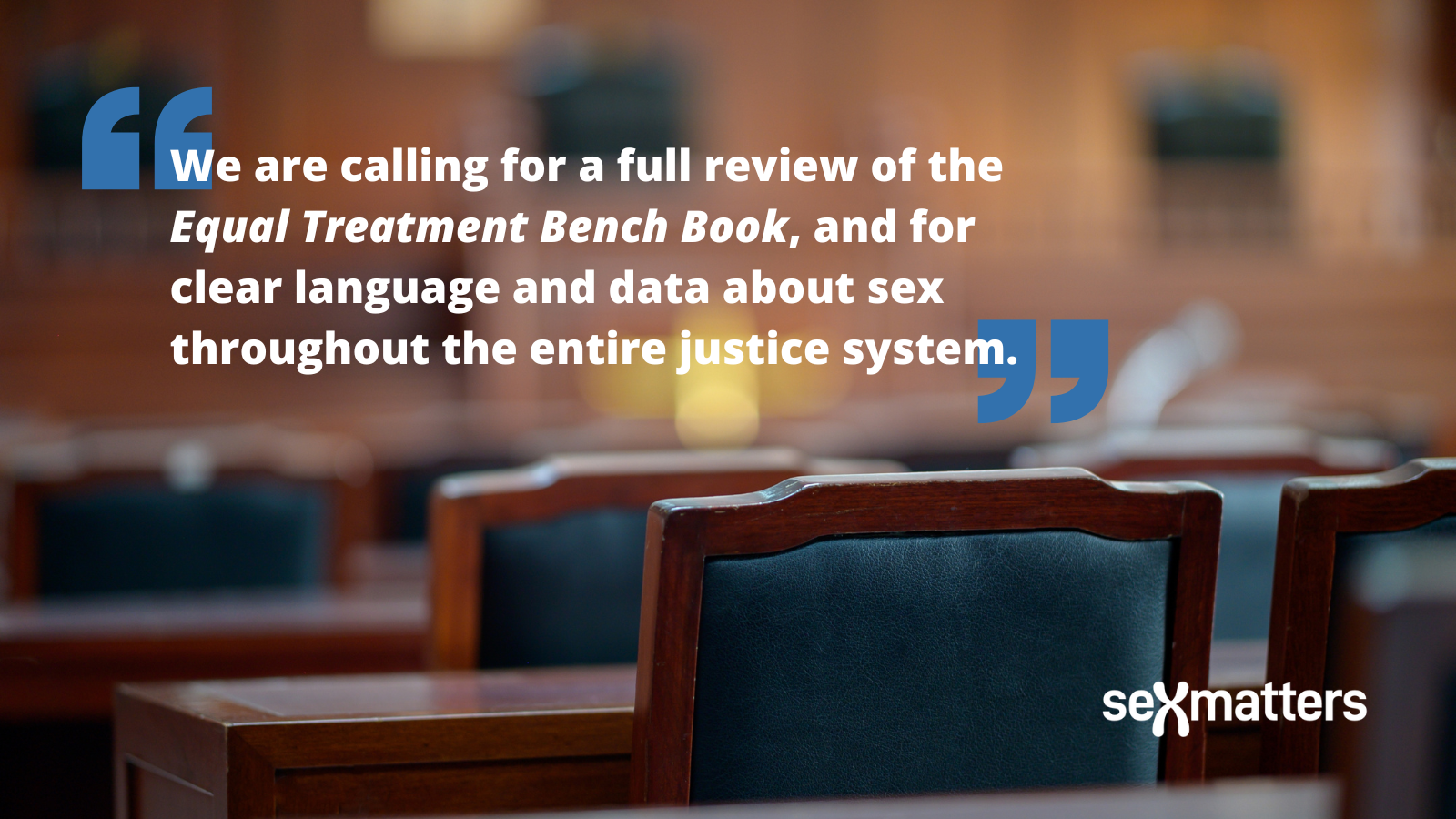Why are judges still calling rapists “she” in court?

The Equal Treatment Bench Book is a guide to judges on how to run an inclusive court room. But it is not based on the law, and it is leading judgments astray.
Sex Matters has published a new report on the problems with the Equal Treatment Bench Book. In particular, the chapter on transgenderism is based on gender ideology, and was clearly written with the view that the current law should be replaced by gender self-ID in practice.
The problem is not only with what the Bench Book says, but how judges are using it. It is supposed to be a guide to the conduct of hearings. But instead it is being drawn on to influence substantive judgments about the conflicting rights of women and transgender people.
Updating the Equal Treatment Bench Book
Last year, following the Forstater EAT judgment which recognised that “gender-critical” beliefs are worthy of respect in a democratic society, the Judicial College significantly revised the transgender chapter.
| Previously | December 2021 revision |
| It is “important to respect a person’s gender identity” by using “appropriate” pronouns | Pronouns are a matter of preference and courtesy |
| No recognition of other people’s rights | Recognises that other people have a right to speak clearly and truthfully |
| Gender recognition certificate changes sex for all purposes | Clarifies that a gender recognition certificate does not change a person’s sex for all purposes, but only for some legal purposes, and that it cannot rewrite history |
| It is a fact that insisting on referring to a trans person using sex-based terms is an act of bad faith | It is possible that insisting on referring to a trans person using sex-based terms is an act of bad faith |
| Uses the term “cis” without comment | Recognises that the term “cis gender” is not a neutral descriptor |
These changes are welcome. But they do not go far enough. And they have not been accompanied by any training or communication to explain the changes or how the Bench Book got it so wrong before.
The current version still contains ideological language and misleading guidance about the law, and seeks to put moral pressure on witnesses not to tell the “truth, the whole truth and nothing but the truth”, but instead to say that a man is a woman.
Misleading language in court
These are some of the people who have been called “she” in judgments and hearings by English courts.
| Brandon/Chloe Walker | Sean/Rose Taylor | “V” | “MxM” | Mathew/Rose Whitby |
 |  |  |  |  |
Misleading language can lead to critical errors about comparators in cases of gender-reassignment discrimination. This was seen recently in the case of V v Sheffield Teaching Hospitals NHS Foundation Trust. The Leeds employment tribunal concluded that an employer had discriminated against a male claimant by asking questions about being half-naked in the women’s changing room that it wouldn’t have asked a “cisgender woman”.
How can the Equal Treatment Bench Book be made fit for purpose?
Sex Matters is publishing a report calling for a full review of the ETBB, and for clear language and data about sex throughout the entire justice system, from the police to the CPS, courts, prisons and probation.
Most urgently, the judicial college should issue a new edition of the ETBB which includes a prominent warning to judges that it is intended only as guidance for the conduct of hearings and should not be used in lieu of evidence, submissions and legal argument, and which makes clear that identifying as transgender does not change a person’s sex.
The problems with the book require a root-and-branch review, rather than line-by-line edits. This should include:
- developing more transparent and accountable process for updating the ETBB
- focusing on its scope and purpose of providing practical advice for conduct in the courtroom
- removing ideological material and content that is outside this scope
- ensuring that it is in line with, and does not undermine, the Equality Act 2010
- making clear that it is not a guide to the Equality Act – removing overlaps with the EHRC Codes of Practice.
It is the Equality and Human Rights Commission’s job to put out guidance on the Equality Act, based on case law. We understand that it will be updating its statutory guidance.
The question of how sex is recorded and referred to goes beyond the courtroom. The Secretary of State for Justice and the Home Secretary should develop a common framework for accurately and clearly recording sex throughout the justice system, removing from judges the temptation to implement gender self-ID that has never been enacted in law.
